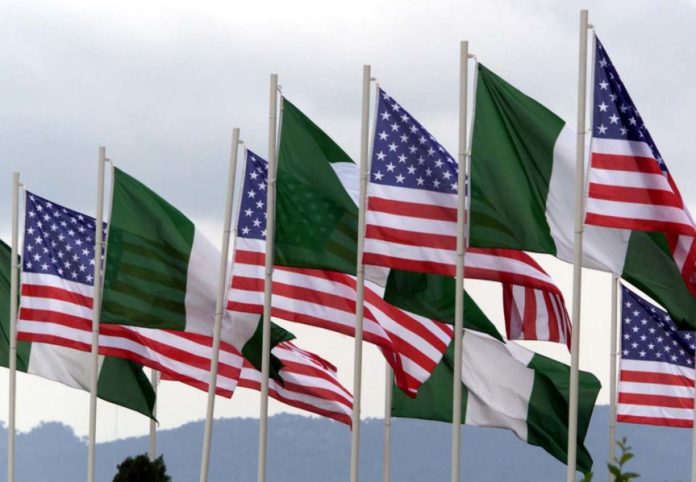Nigeria’s Consul-General in New York, Ambassador Abubakar Jidda, has reaffirmed the country’s dedication to deepening economic and investment relations with the United States.
Speaking at the 14th Annual Trade and Investment Summit organised by the Nigeria-USA Chamber of Commerce in Cleveland, Ohio, Jidda highlighted Nigeria’s ongoing economic reforms and urged American investors and the Nigerian diaspora to seize the opportunities arising from the administration’s Renewed Hope Agenda.
“Nigeria is undergoing significant transformation. We are signaling to global partners that we are reforming, resilient, and open for business,” he said.
He called on investors to explore Nigeria’s growing economic landscape, noting that the longstanding diplomatic ties between Nigeria and the U.S. should translate into tangible economic collaborations.
Citing trade statistics, Ambassador Jidda revealed that trade between the two countries reached over $8.1 billion in 2024, with Nigeria’s non-oil exports to the U.S. growing by more than 15 percent. He also referenced key policy changes such as fuel subsidy removal, foreign exchange unification, tax reforms, and measures to enhance the business climate as evidence of Nigeria’s commitment to fostering a private sector-led economy.
Jidda emphasized that Nigeria’s economic potential — including a population exceeding 220 million, a young and dynamic workforce, and access to the $3.4 trillion African Continental Free Trade Area (AfCFTA) — makes it an attractive destination for long-term investment.
“Investors coming into Nigeria are not only tapping into the local market but gaining access to an entire continent,” he said, while listing several focus areas of Nigeria’s trade policy such as trade liberalisation, investment protection, and public-private partnerships.
He further pointed to ongoing improvements like streamlined company registration processes, digital port systems, special economic zones, tax incentives, and visa-on-arrival policies that are designed to attract foreign businesses.
According to him, sectors such as agriculture, fintech, clean energy, pharmaceuticals, tourism, real estate, and the creative industry offer significant opportunities for investment. He commended the Nigeria-USA Chamber of Commerce for facilitating meaningful dialogue and promoting economic collaboration.
Jidda also praised the Nigerian diaspora for their enduring contributions to national development through remittances, investments, and expertise.
“You remain one of our greatest assets. Your continued efforts are vital to Nigeria’s progress,” he said.
The envoy assured prospective investors of the support of Nigerian missions in the U.S., stressing that they are equipped to assist with investment facilitation and strategic business engagements.
Highlighting mechanisms like the Nigeria Sovereign Investment Authority, Infrastructure Corporation of Nigeria, and the Development Bank of Nigeria, he encouraged U.S. businesses to pursue partnerships backed by strong institutional frameworks.
“Nigeria holds immense promise — and that promise can only be realized through partnership,” he added.
In his opening remarks, Leo Kareem, Founding CEO of the Nigeria-USA Chamber of Commerce, reflected on the growth of the summit since its establishment in 2010. He said the event, which alternates between Nigeria and the United States, has consistently promoted small business development and cross-border trade.
This year’s summit, themed “Promoting U.S. and Nigerian Exports to Emerging Markets,” brought together top Nigerian and American policymakers, entrepreneurs, trade experts, and investors to explore new avenues for economic collaboration.
Also in attendance was Ambassador Franklin Ogunyemi, Consul for Trade and Investment at the Nigerian Consulate in New York, who engaged stakeholders on strategic areas of cooperation and trade facilitation.
